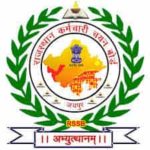Hello and welcome to exampundit . Here is a set of English Quiz for the upcoming SBI Clerk(Junior Associates) Mains 2016.
Read the followings carefully and answer
Rules:
Post answers according to the following format(s)
1-2
2-3
3-4
Or
12345
54213
In case the options are ABCD, use the Appropriate Options.
Do Not Rectify anyone.
If you have any doubt regarding any question of the quiz, kindly ask after the quiz is over i.e answers given.
DO NOT GOOGLE ANSWERS!! IT WILL HAMPER YOUR PREPARATION
Do Not CHAT here. If you have any query, use today’s Ask The Mentor Page.
At least 10 Attempts for Scores.
Exampundit.in reserves the right to choose winner or give scores.
Directions (Q. 1-15):
Read the following passage carefully and answer the questions given below it.
Certain words have been printed in bold to help you locate them while answering
some of the questions.
Read the following passage carefully and answer the questions given below it.
Certain words have been printed in bold to help you locate them while answering
some of the questions.
For many years, the continent of
Africa remained unexplored and hence unknown. The main reason was the
inaccessibility to its interior region due to dense forests, wild life, savage tribals, deserts and barren solid hills. Many people tried
to explore the land but could not survive the dangers. David Livingstone is
among those brave few who not only explored part of Africa but also lived among
the tribals bringing them near to social milieu. While others explored with the
idea of expanding their respective empires, Livingstone did so to explore its vast and mysterious hinterland, rivers
and lakes. He was primarily a religious man and a medical practitioner who
tried to help mankind with it.
Africa remained unexplored and hence unknown. The main reason was the
inaccessibility to its interior region due to dense forests, wild life, savage tribals, deserts and barren solid hills. Many people tried
to explore the land but could not survive the dangers. David Livingstone is
among those brave few who not only explored part of Africa but also lived among
the tribals bringing them near to social milieu. While others explored with the
idea of expanding their respective empires, Livingstone did so to explore its vast and mysterious hinterland, rivers
and lakes. He was primarily a religious man and a medical practitioner who
tried to help mankind with it.
Livingstone was born in Scotland
and was educated to become a doctor and a priest. His exploration started at the beginning of the year 1852. He explored
an unknown river in Western Luanda. However, he was reduced to a skeleton
during four years of travelling. By this time, he had become famous and when he
returned to England for convalescing, entire London, along with Queen Victoria
the, turned to welcome him. After a
few days, he returned to Africa.
and was educated to become a doctor and a priest. His exploration started at the beginning of the year 1852. He explored
an unknown river in Western Luanda. However, he was reduced to a skeleton
during four years of travelling. By this time, he had become famous and when he
returned to England for convalescing, entire London, along with Queen Victoria
the, turned to welcome him. After a
few days, he returned to Africa.
He discovered the origin of the
River Nile in 1866. He again suffered many discomforts. He became too sick and
could not even walk. He lost contact with rest
of the world that grew anxious to know his whereabouts. Ultimately, it was
Stanley, the American journalist, who found him after many efforts, but
Livingstone had died in a tribal village in 1873. His body was brought to
London and buried in Westminster with full honour.
River Nile in 1866. He again suffered many discomforts. He became too sick and
could not even walk. He lost contact with rest
of the world that grew anxious to know his whereabouts. Ultimately, it was
Stanley, the American journalist, who found him after many efforts, but
Livingstone had died in a tribal village in 1873. His body was brought to
London and buried in Westminster with full honour.
1. Which of the following
shows that Livingstone had become very famous?
shows that Livingstone had become very famous?
1) Queen Victoria along with the people of London had come
to meet him.
to meet him.
2) Queen Victoria arranged for his medical expenses.
3) The tribals were grateful to him for bringing them in the
social mainstream.
social mainstream.
4) He was assigned the task of a priest although he was a
medical professional.
medical professional.
5) None of these
2. Why were people
not aware of the existence of Africa?
not aware of the existence of Africa?
1) It was inaccessible due to oceanic reefs.
2) Its territory was covered with dense forests.
3) People outside the continent were chased away by native
tribals.
tribals.
4) Explorers were afraid of the risks involved.
5) None of these
3. Livingstone
deserves credit for which of the following?
deserves credit for which of the following?
1) For expanding his empire
2) For enjoying the wild life of the continent
3) For exploring part of Africa and living among the tribals
4) For quenching his thirst for living in the company of nature
5) None of these
4. What was the
impact of the four-year travelling on Livingstone?
impact of the four-year travelling on Livingstone?
1) He could enjoy a social life among tribals’ society.
2) He derived satisfaction with the exploration of an unknown
river.
river.
3) He derived satisfaction as he became very famous.
4) It badly affected his health.
5) None of these
5. The American
journalist Stanley can be credited for which of the following?
journalist Stanley can be credited for which of the following?
(A) Performing the last rites of Livingstone’s dead body.
(B) Relentless efforts for finding out the whereabouts of
Livingstone.
Livingstone.
(C) The anxiety to explore undiscovered parts of the world.
1) (A) and (B) only
2) (B) and (C) only
3) (A) and (C) only
4) (B) only
5) (C) only
6. Livingstone can
best be described by which of the following?
best be described by which of the following?
1) A person with an urge for exploration of unknown parts of
the world
the world
2) A person with religious mindset
3) A social reformer
4) A warm-hearted medical practitioner
5) A famous priest popular among the British
7. Livingstone became
too sick to walk and, as a result,
too sick to walk and, as a result,
(A) people in the world lost contact with him
(B) his whereabouts were not known.
(C) American journalist Stanley could not locate him despite
many efforts.
many efforts.
1) (A) only
2) (B) only
3) (C) only
4) (A) and (C) only
5) None of these
8. In what way were
Livingstone’s exploration efforts different from those of others?
Livingstone’s exploration efforts different from those of others?
1) Livingstone’s exploration was restricted only to unknown
rivers whereas others explored dense forests.
rivers whereas others explored dense forests.
2) Others explored with selfish motives; Livingstone explored
to know the mysterious parts of the world.
to know the mysterious parts of the world.
3) Others explored new parts of the world for wealth, but Livingstone
did so for religious purposes.
did so for religious purposes.
4) Being a medical practitioner, he tried to explore medicines;
others did for tribal population.
others did for tribal population.
5) None of these
9. Which of the
following was/were explored by Livingstone?
following was/were explored by Livingstone?
(A) A river in Western Luanda
(B) Scotland
(C) The origin of river Nile
1) (A) and (B) only
2) (B) and (C) only
3) (A) and (C) only
4) (A) only
5) (B) only
Directions (Q. 10-12):
Choose the word which is most nearly the SAME in meaning as the word given in
bold as used in the passage.
Choose the word which is most nearly the SAME in meaning as the word given in
bold as used in the passage.
10. exploration
1) execution 2) cultivation 3) foundation
4) discovery 5) assimilation
11. turned
1) rotated 2) twisted 3) spinned
4) revolved 5) arrived
12. rest
1) remaining 2) relax 3) respite
4) break 5) most
Directions (Q. 13-15):
Choose the word which is most OPPOSITE in meaning of the word given in bold
as used in the passage.
Choose the word which is most OPPOSITE in meaning of the word given in bold
as used in the passage.
13. barren
1) uncultivated 2) fertile 3) forest
4) unlevelled 5) marshy
14. vast
1) miniature 2) magnified 3) enormous
4) gigantic 5) small
15. dense
1) crowded 2) dark 3) sparse
4) transparent 5) opaque
And the winners are………
- Ruchi – 15/15
- Chitrarth – 14/15
- Sourav – 14/15
Regards
Team ExamPundit
This post was last modified on November 27, 2017 8:56 am





